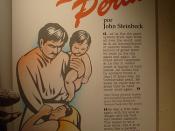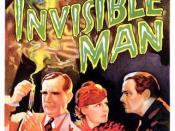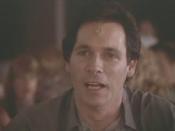It appears the throughout history, man has acquired an appetite for wealth and power due to the idea that happiness can be found from these. On the contrary, it is man's ambitions for wealth, power and other luxuries that lead to their self-destruction. Kino from John Steinbeck's The Pearl and Jack Griffin from H.G. Wells' The Invisible Man both show that their extreme desire for these things leads them to their own undoing through greed, the extremity in the actions they commit and eventually succumbing to insanity.
Greed, the excessive desire to acquire or possess more than one needs or deserves, is part of human nature and if controlled properly can be helpful in the legitimate pursuit of wealth. However, when it gets out of hand, it can consume and ruin lives. Kino finds this out the hard way through the death of his son, Coyotito. The dream for a prosperous future, despite the happiness within his normal life, leads Kino to use the visions from the pearl to satisfy his greed for wealth and prosperity.
"A foolish madness came over him and he began to speak foolish words." (Steinbeck 26) Once he begins to want more from the pearl, it totally consumes him to the point where he cannot let go. "This pearl has become my soul. If I give it up, I shall lose my soul." (Steinbeck 79) By this point in the story, Kino shows an excessive amount of greed by wanting more things to come from the pearl that are not necessities but luxuries, in Kino's case, "...a new harpoon of iron.... a rifle.... since he was so rich." (Steinbeck 25) This shows how he allows greed to take over him. Illusions and images of riches run through Kino's mind, and he wants more of...


